My Adoption Story
My Adoption Story
“Not flesh of my flesh, nor bone of my bone, but still miraculously my own. Never forget for a single minute, you didn’t grow under my heart, but in it.” – Fleur Conkling Heyliger
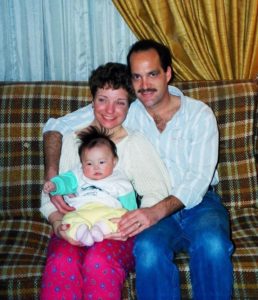
March 24th will always be one of the most important days of my life. On this day, almost 29 years ago, I flew from Seoul, Korea, to Michigan to meet my forever family.
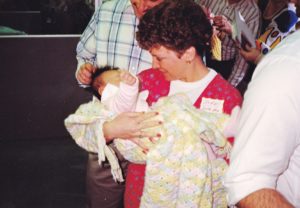
As an adult, I know that many stories begin like this. However, as a child, I never thought about what adoption really meant. I’m not quite sure my schoolmates knew either. My classmates just knew me as the girl who always shared cookies, cake, or cupcakes and celebrated her adoption every March 24th. Each year, my mom or dad helped educate my friends and classroom about my “Plane Day.” We would even bring in little folded handouts to give to everyone.
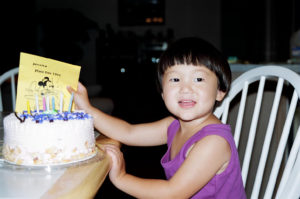
Then, my parents and I would talk about Korea and my adoption to the class. I would bring in my big Korean book and sometimes even my little Korean outfit.
We celebrated every year that I still lived at home, and still celebrate this day even now. It is a day I will forever cherish because I was, and am, so proud of my adoption.
Nevertheless, it never truly occurred to me the significance of my adoption, nor how special my family is, until I went to law school and became an adoption attorney.
You see, I am not the only adopted child in my family. Both my younger sister and brother were adopted, too. Each of us have a very different adoption story.
My parents knew I was theirs while in utero. I was supposed to be born premature, but, nearly nine months passed before I was born. I spent the first three months of life in a Korean foster-like home before I was flown to the United States. A little bit later, I was legally adopted. I, of course, have no memory of the first three months of my life. However, I do have an area on the back of my head which is flat—likely due to being constantly laid down in the crib.
My Sister’s Adoption Story
My sister’s story is quite different than mine. She was found on a bench at a train station before being placed in an orphanage—a story that may not be unlike other Chinese adoptees, at least from my very limited understanding and knowledge. She lived in an orphanage before my parents flew and brought her back to the United States. She was eighteen months old by the time she reached her forever home.
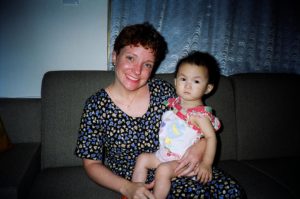
Flash forward years later when my sister was in elementary school and my parents, along with the assistance of our dentist and pediatrician, discovered she was not actually 18 months old when she came to us. Instead, she was closer to my age. We had grown up believing she was four (4) years younger than me. Now, it seems as if she was only about eighteen (18) months younger. Due to a congenital heart defect and malnourishment, she was small enough to pass as an eighteen-month-old when she joined the family. After much debate, my parents decided not to change her birth certificate date as they didn’t want to take away 2 years of her life. We still celebrate her birthday as we always do, even though it may be a few months off.
My Brother’s Adoption Story
When my sister and I were both in college, my parents decided to foster an 8-year-old little boy. It was his experiences which spurred my passion for child welfare. Within one year of having my brother placed in my parents’ house, he was adopted. One aspect that struck me about my brother’s experiences was his lack of photos as a child. In fact, he had nothing to account for his childhood except for a plastic bin with a red top. That bin, about 2.5 feet long, 1.5 feet wide, and 1 foot deep, contained the first eight years of his life. Eight years of life was stuffed in a bin. Sure, this is a step up from trash bags that many foster children carry around, but a plastic bin isn’t a significant improvement.
Due to the constant flow of case workers, lawyers, judges, etc., the only person who knew him for the duration of his case was his volunteer CASA worker (Court Appointed Special Advocate), to whom my family was entirely grateful. In fact, she was the only one who had a few photos of his childhood.
Helping Make Forever Families
The timing of my brother’s adoption happened to coincide with my time as a law student. I was inspired by my brother to discover more about foster care and adoption, and I became more interested in child welfare and the issues surrounding it. I took courses geared towards children and the law. I became involved with extracurricular activities that had to do with children and families. I even wrote my substantial paper on child welfare and adoption. As I became more engaged with the legal field, I also learned about “adoption lawyers.” So, upon graduating from law school, I began working as an adoption attorney and now assist families in building their forever families.
Practicing as an adoption attorney really opened my eyes to the different needs in child welfare: birth families, poverty, lack of funding, overworked employees, etc.
The Greatest Gift & Hardest Goodbye
Practicing also gave me a new appreciation for birth parents. Part of my job includes representing birth mothers who are placing their children for adoption. Prior to practicing, I honestly had not even thought about what mothers go through in an adoption. Not many of my friends had children, nor do I. Thus, I did not truly understand how emotional of a decision it is to place a child for adoption. It was not until I met with a mother whom was signing away her rights that I started to grasp the difficulty and emotions. These moms are amazing. They make truly courageous and selfless decisions for their children. I realized then that I am living a full and successful life because of my own birth parents. Without their courage, strength, and belief that I could do great things, I would not be where I am today. These moms and dads want the best for their children, which is why they choose adoption.
But, as many know, adoption, both private and through foster care, is not without its challenges. In the private realm, there are a myriad of unknowns: birth parents consenting, being matched with a child, the traveling, the expenses, post-placement visitation. Similarly, there are unknowns with foster care adoptions: the history of trauma and abuse for the child, the length of time of the court case, the home visits with case workers, social workers, lawyers, the multiple placements, severing of ties with birth families including parents, relatives, and siblings, future services to help with healing from the past. Discussing all the various issues would require another blog post entirely. Ultimately, it is important for individuals to know and understand the possibility of these challenges before deciding whether to foster or adopt.
Fostering Together
I would like to briefly touch on the child welfare cycle for the benefit of those considering either fostering or adopting a child from this system. I am only familiar with two southern Arizona counties, and preface this information with a warning that every state and county is different.
For those unfamiliar with the Department of Child Safety (“DCS”) process, generally, if DCS takes a child from his or her home, the child is usually placed either with family, a friend, or a foster home. The parents then participate in a dependency case. Everyone in the case is given an attorney (mom, dad, child, DCS). Mom and dad are then given a certain amount of time and services to complete to have their child reunified and placed back with them. It sounds easy enough, especially if the parent really loves the child, right?
Well, what if the mom has a substance abuse problem, does not have a steady job or a steady place to live, and just had her one and only support taken from her? Now, she is required to attend court hearings, participate in random drug testing, parenting classes, substance abuse classes, home visits by multiple people, and visits with her child, sometimes supervised by a complete stranger. What if the mom started using drugs because her parents neglected her as a child and so she lacks a strong understanding of right and wrong? What if the mom lived in poverty and she thought she was raising her child better than her parents, the only persons whom she could look to for parenting advice? What if that mother herself had been placed in foster care at an older age (let’s say, age 8), grew up in a group home, and aged out of the system? If nobody wanted you in their family for ten years, how do you think you would feel? Do you think you would be able to overcome all that was thrown at you and succeed? Broken homes lead to broken people.
Now, don’t get me wrong. Not every parent with a DCS case has suffered from a troubled life. Some of these cases involve inexcusable, abhorrent, and unforgivable actions, especially since it will take years of love, support, and services to try to help a child overcome the experiences and live a successful life. I don’t wish to categorize the various reasons for which children are taken from their parents’ homes. I just want to point out that in some instances, these moms and dads who lose their children need support and guidance, too. Trust me, I only want what is best for a child. After all, my own brother, whom I love and support, was one of these children.
Ultimately, we need to think about what we want to support. I know funds are limited and there are hundreds of thousands of organizations who need financial assistance to make the world better for children. However, I also know case workers, social workers, and attorneys who are supporting the families with children in the system are underpaid and overworked. Judges also play a vital role in supporting the children and families, as do volunteers such as CASA workers, Foster Care Review Board members, and child mentors. Sometimes, the support may even come from their child’s placement, whether it be a family member, a friend, or foster parents. It is a difficult situation for everyone.
There are no easy answers here. There are families struggling, their children are being taken from them, there is still a genuine lack of resources for those impoverished and struggling with addiction, and there are teens aging out of the system without support. A child should not end up being placed out of home simply because of poverty.
The Numbers
As of June 30, 2018, Arizona had 13,670 children who were placed out of home: 5,073 were placed with relatives; 6,369 were placed in a foster home; and 1,665 were placed in a group home. The other 816 children were placed in an institution/residential home, were living on their own in independent living, had run away, were in a trial home visit, or did not have an identified placement. Of the 1,665 who were placed in a group home, 1,590 were eight years and older (95.5%). (source: https://dcs.az.gov/reports-data/dcs-reports, Semi-Annual Child Welfare Report Sep 2018 revised). I chose to begin with age eight because that’s how old my brother was when he was placed with us and I always think about where his life would be had he not been adopted.
Simply put, if we, as a society, put more emphasis on supporting those who need the assistance (teens aging out of the system, those persons living below the poverty line, those suffering from domestic abuse, etc.), perhaps we can help prevent the removal of children from homes. This way, foster homes can be open for children currently in care or in group homes, who need a loving, supportive family to help get them through their time in foster care.
Happy Endings
Now, the reason I love my job is because I can bring families together. Given how important my own adoption day is to my family, I try to celebrate the adoptions of my clients—the adoptive parents. I became a very amateur photographer in hopes of being able to help capture the day for the family. Oftentimes, I saw a family’s adoption being captured on a flip phone… in the year 2017. I wanted their adoption day to be something to cherish and always remember. After all, these families and children had been through so much already. I wanted to be able to capture a moment of happiness—the end of the dependency case and the beginning of their forever home.
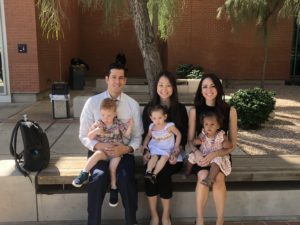
As I stated earlier, I was always proud of being adopted. It made me different. I never thought about how others saw my family. We are, after all, a family consisting of three white Americans and two Asian. It is obvious to everyone else that we were adopted. But I never saw the obvious. I just saw our family.
Now, without getting into a nature v. nurture discussion, I do have to say that I share in so many of my family’s qualities. To start, I have an intense love for ice cream. And gelato. In fact, while visiting Italy, I made it a point to have gelato Every. Single. Day. Come to find out, I take after my “Mom Mom” (pronounced “MumMum”), who ate ice cream nearly every day of her life. Similarly, I have her strength and tenacity (though some may confuse my tenacity with stubbornness).
I also have my mom’s feet, my dad’s eyes (and his sense of humor), my papa’s patience, my grandma’s wiggly toes, and my grandpa’s wiggly ears. I am awfully proud to be part of this family and am proud of all the qualities, good and bad, that come with it!
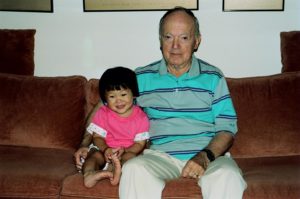
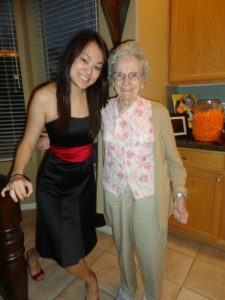
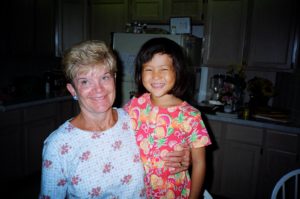
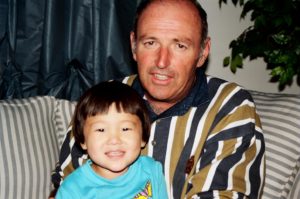
Takeaways
- Birth parents are strong, courageous, and selfless.
- The people working within child welfare want to protect children and make a difference to our community.
- Not all parents in the DCS system are “bad.”
- We need to do more to provide support for our community to help keep families together.
- We can incite change (for the better) to allow permanency for foster children.
And finally…
- My parents are strong. My parents are compassionate. My parents have the biggest hearts of anybody. As cliché as it might sound, without them, I would not be where I am today. I wouldn’t be building forever families like my own. I wouldn’t be part of organizations which support foster and adoptive parents and children, nor families with congenital heart defects. So, thank you. I love you.
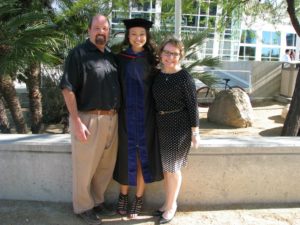
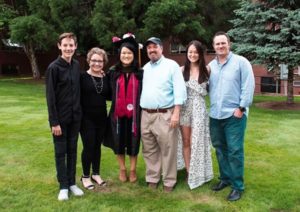
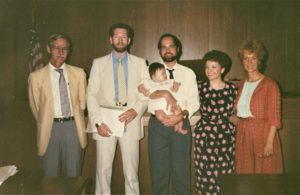
About the Author
Arizona Adoption Attorney Jessica Graves is a double University of Arizona Wildcat alumni (Bear Down!), having found her home in Tucson where she lives with her husband and dog. Apart from being an adoption attorney, Jessica is a board member of Congenital Heart Defect Families of Tucson and More Than a Bed (foster and adoptive resource center). She is a member of the 2019 Greater Tucson Leadership Class and volunteers with Lawyers for Literacy each week. You can follow her on Instagram @JessicaGravesLaw, Twitter @JGravesLaw, and like her page on Facebook: @JessicaGravesLaw. For information on adopting a child in Arizona, you can contact Jessica at Jessica@JessicaGravesLaw.com. This article and any communication related to the article is not intended to provide legal advice nor create an attorney-client relationship. All photos belong to Jessica Graves.
Tags: adopting, adoption, adoption attorney, adoption lawyer, arizona, foster care, foster care adoption, jessica graves, jessica graves lawyer, tucson lawyer
